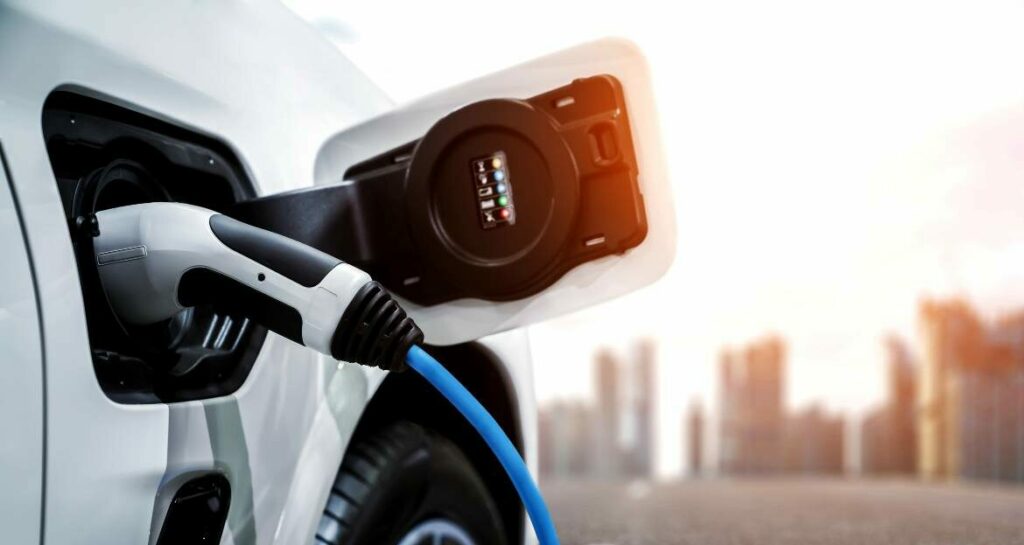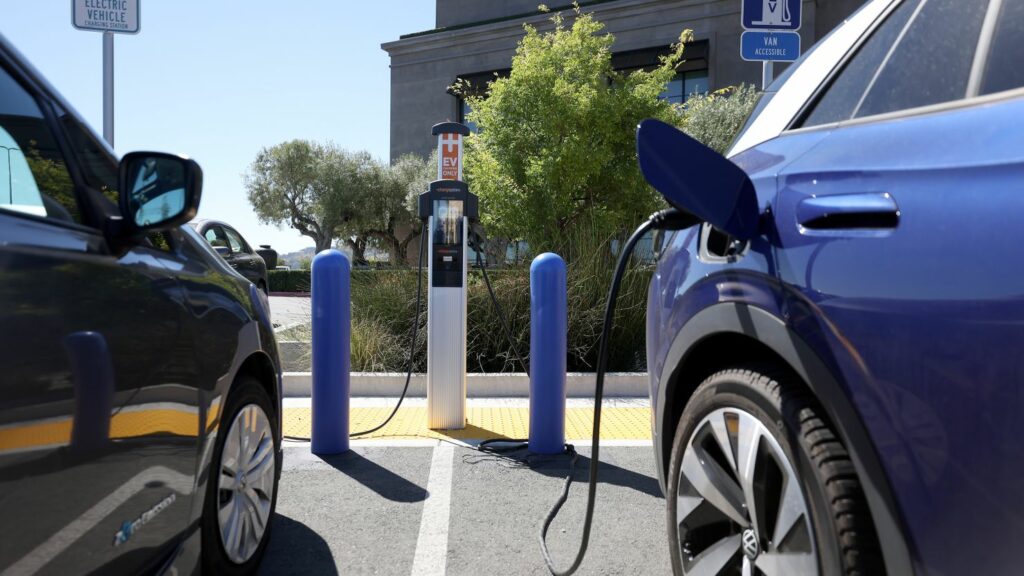One of the supposed vital aspects of reaching “Net Zero” by 2050 is rapid, massive forced conversion to electric vehicles. And even though the Canadian government is determined to keep you safe from everything including your own stupidity, it nevertheless carefully fails to track the tendency of these miracles on wheels to burst into flames. These fires are no joke. Even the New York Times has written about “How E-Bike Battery Fires Became a Deadly Crisis in New York City”, adding that “City leaders are racing to regulate battery-powered mobility devices, which have been the source of over 100 fires so far this year.” Good thing fire trucks are still allowed to run on gas.
Not that governments will admit to being worried about EV fires. According to a National Research Council report, fire shmire. It said:
“In Canada, since there is no national database on fires and most provinces don’t track whether vehicle fires involve electrics, the number of fires of electric vehicles cannot be reported. Most of the reported fires in garages are in parking structures attached to apartment buildings.”
If trucks from a pro-freedom protest convoy were bursting into flames in crowded apartment buildings, we feel, they would find a way to report it. The NRC report goes on primly to say:
“Vehicles are active during charging which poses a hazard in garages. Although large vehicle fires in parking structures are not common they might lead to large economic losses.”
Indeed. Also, at the risk of sounding like bleeding hearts, loss of life.
That Canadians do not want electric cars is of no account to a government that knows we should want them and is always happy to help us grasp our true interest when we are too dumb or ornery to get there unassisted. Including as Blacklock’s notes that:
“Cabinet has mandated that all new vehicles sold in Canada be zero emission models by 2035. Currently electrics account for five percent of vehicle sales, by official estimate.”
Canary Media is unimpressed by the obstacles. In one piece they chirp that the IEA, one of those globalized thoroughly captured institutions all-in on all the trendy causes, thinks “EVs could make up more than a third of global car sales by 2030”. Well, it would, wouldn’t it? But even if true, it means we’d have just five years to get the other two-thirds, having taken 15 or so to get the first one.
Still, in another piece one of their Senior Reporters tells us cheerily that “Driving less may be as easy as riding a bike – a big electric one”. Yeah. If you’re under 40 and have no medical conditions. But already the rental-car “surprise EV” is becoming a major consumer headache, while the AAA just reported that heavy loads or cold weather dramatically reduce the supposed range of the things between charges. The charging issue alone is a huge obstacle. And when it comes to heavy trucks, forget about it. Not happening.
As to the costs, well, the Blacklock’s piece ends:
“The Department of Environment in a regulatory notice last December 31 acknowledged numerous expenses including ‘cost of retraining mechanics,’ higher accident insurance premiums for electrics that ‘tend to be heavier due to the weight of batteries on board’ and lost profits for ‘gas stations with attached convenience stores.’”
But who cares? Canada’s PM is forever flying around emphasizing the importance of reducing your carbon footprint. And seems to have nothing to say about the horrendous labor and ecological consequences of the drive to produce enough cobalt and other minerals to support this gigantic boondoggle that have even early enthusiast-adopters like Rowan Atkinson expressing second thoughts about EVs and the environment. (Many buyers are having more pragmatic remorse as well, over plunging resale value.)
Unfortunately our political leaders are not in the habit of looking at the big picture or the long run. If they were, if they were in the habit of studying economics and economic history, a big if, they would know that governments have been enthusiastically and expensively wrong about the technology of the future on numerous occasions including, say, going all-in on canals just as the railway train came round the historical bend and clobbered them (not that many didn’t also over-invest in railroads too, placing the wrong bet on the right technology with that unerring gift for picking losers and calling them winners). And with North American and European manufacturing already reeling, in part from high energy prices deliberately engineered by their governments, those same governments are also now devastating their automobile industries by forcing them to switch from profitable vehicles consumers want to unprofitable ones for which subsidies today may well vanish tomorrow.
The jobs are already vanishing now. Including, we might add, that the U.S.-government-subsidized and -hyped EV maker Lordstown that we ridiculed a few weeks back just filed for bankruptcy. In the end it will be Chinese firms that pick up the pieces and the jobs will be gone for good. (And if you think the Chinese EV industry is environmentally clean, you are sadly deluded.) If an enemy were doing it to us we would call it a direct national security threat. Instead we call it the economy of the future.
Including painfully expensive gas. Washington State, for instance, now has the most expensive gasoline in the U.S. When the state created its cap-and-trade program, governor Jay Inslee scoffed at critics, saying:
“This is going to have a minimal impact, if any. Pennies. We are talking about pennies.”
The New York Sun adds that “According to the Affordable Fuel Washington lobbying group… those assessments have now been scrubbed from the department’s website, and Mr. Inslee’s office is blaming oil companies for the high fuel prices in the state.”
As if pricing gasoline out of reach were not in fact the goal of these programs. It would be bad enough if they were doing it with some sort of concentrated focus and measuring results against expectations. But instead they’re just winging it, so sublimely confident of their own excellence that no comparison with reality is needed.
Data? We don’t need no flaming data.



"...having taken 15 or so to get the first one."
Correction: Having taken 150 years to get to the first one.
Being a user of BC Ferries, I asked them what plans they had to deal with an EV fire on board one of their boats. The car decks are typically jammed, so I asked - are EV's parked in a separate location so they can be pushed overboard if the catch fire. Nope they cheerfully responded but their crew are trained to fight these fires with the best foam equipment. I responded that foam is ineffective in an electrical fire from an EV's battery, and even Elon Musk advises against using it. Their answer to that was their crews are highly trained and have the best foam equipment! An electric car fire on one of these boats, with the car jammed amongst 100 other cars will be a disaster, and I suspect will lead to significant loss of lives, The brainl dead beat goes on.
Being a user of BC Ferries, I asked them what plans they had to deal with an EV fire on board one of their boats. The car decks are typically jammed, so I asked - are EV's parked in a separate location so they can be pushed overboard if the catch fire. Nope they cheerfully responded but their crew are trained to fight these fires with the best foam equipment. I responded that foam is ineffective in an electrical fire from an EV's battery, and even Elon Musk advises against using it. Their answer to that was their crews are highly trained and have the best foam equipment! An electric car fire on one of these boats, with the car jammed amongst 100 other cars will be a disaster, and I suspect will lead to significant loss of lives, The brain dead beat goes on.
The older I get the more I see intelligent government policy as an oxymoron, and government as a house for morons.